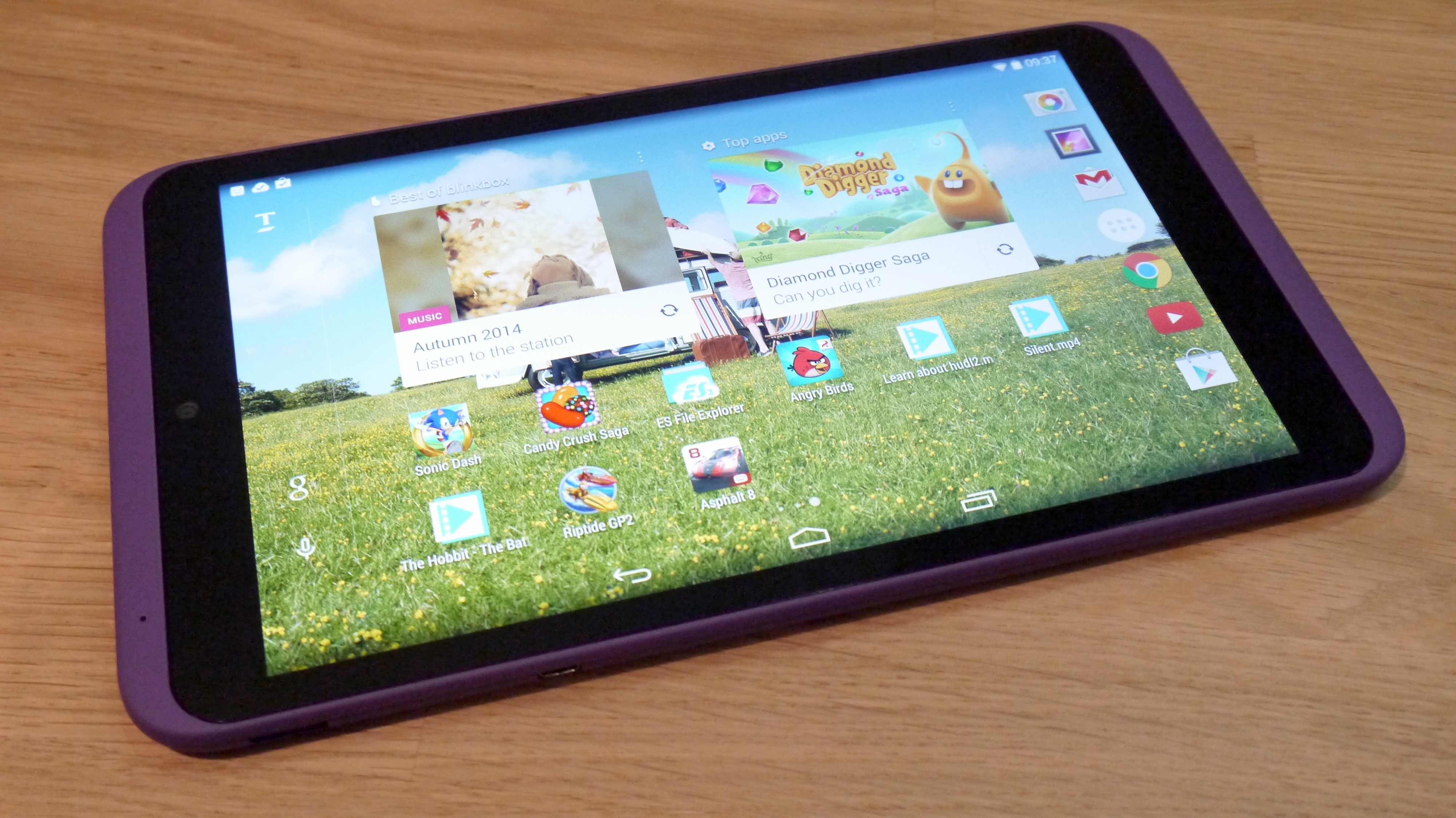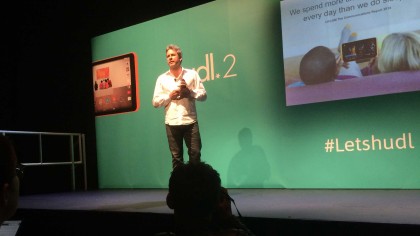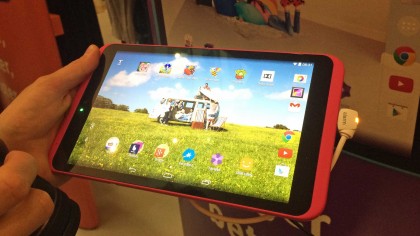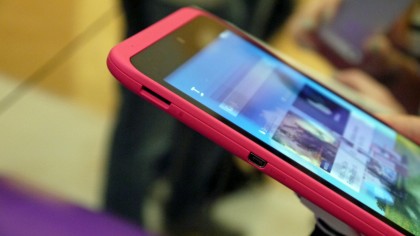The Hudl 2 proves that Tesco can be a tech giant
Put aside the annus horribilis and focus on the product

Sign up for breaking news, reviews, opinion, top tech deals, and more.
You are now subscribed
Your newsletter sign-up was successful
Making great technology is one thing, getting it in front of the mainstream audience and getting them to trust your brand is an entirely different proposition. So you can understand why a retailer like Tesco believes that it can be a major player.
As it announced the Hudl 2 tablet after what has been a pretty torrid few months for the second biggest retailer on the planet, many of the questions revolved around Tesco's commitment to this new branch.
"Would it be killing the expensively acquired Blinkbox?" someone asked. "Is this the last Hudl?" queried another. The response from Tesco Group digital officer and former Blinkbox man Michael Comish was understandably defensive, as he aimed to bring focus back to the now.
And you can understand why: the Hudl 2 is an easy device to like - cheap and powerful, with a laser focus on the core audience.
The implementation of meaningful parental tools - simple enough for the non-tech savvy to operate and strong enough to stop the enquiring (and savvier) minds of the kids circumventing the feature - smacks of a brand that is playing to its audience.
Let's not forget the price-point. Tesco has not reached the zenith of the supermarket world without a hefty slice of pile them high and sell them low, and although Comish insisted that the Hudl 2 was 'commercially viable' you would imagine that any margin is as 'super-slim' as the press release claims the tablet to be.

The original Hudl, fuelled by a slightly lower price and the tempting offer of reducing that with Tesco clubcard points, sold 750,000 and the target for its successor is in the same ball park.
Sign up for breaking news, reviews, opinion, top tech deals, and more.
Our early impressions suggest that it might well manage this, given that this is a significantly improved device with only a minor shift in price point and the same Club Card policy.
An open goal
In fact, you'd be forgiven for thinking that the Hudl 2 has all the hallmarks of an open goal in the tech world.
Not only is the price point and the product good, but Tesco can literally put its products in the hands of millions of shoppers as they walk around doing their weekly food buy.

That there is a big aura of caution emanating from Tesco, you would imagine is more about timing than anything else. Tesco's new CEO Dave Lewis is the first outsider to take the reins, and his appointment is seen as a direct answer to declining market share and an ill-judged attempt at establishing the company in the US.
From the tech perspective, his inevitable root and branch inquest into the supermarket's amorphous bundle of offerings, plus the closure of the Blinkbox fuelled Clubcard TV has raised both eyebrows and questions about the new direction.
So is the Hudl 2 simply a product that had been expensively developed and hit a point where calling time on the whole thing made no sense, or is this a meaningful arena for Tesco to compete in?

Citing the rise and rise of the cheap Chinese phones as the reason why the Hudl Phone fell by the wayside, Comish was adamant that there is little competition at that price point, despite refusing to name its competitive set.
Competitive set
Comish might not want to mention the competition but we certainly can - Amazon's Kindle Fire range remains a competitively priced offering with impressive specs (but a hefty dose of having to drink the company's Kool aid).
The Nexus 7 is smaller and pricier and the forthcoming Nexus 9 is likely to be even more expensive. If you're considering premium then it's really only a little Samsung and a large dollop of Apple's iPad mini 2 that bear consideration.
There is certainly an opportunity for someone who can appeal to that mass-market, non-premium buyer who wants a trusted brand and to not be ripped off.
And, with products that are inspiring praise and price points that are stirring interest in the exact pot of people who browse the groceries and clothes that abut them, it's clear that even a troubled Tesco can be as big a tech influencer as a host of the top brands in the UK.

Patrick Goss is the ex-Editor in Chief of TechRadar. Patrick was a passionate and experienced journalist, and he has been lucky enough to work on some of the finest online properties on the planet, building audiences everywhere and establishing himself at the forefront of digital content. After a long stint as the boss at TechRadar, Patrick has now moved on to a role with Apple, where he is the Managing Editor for the App Store in the UK.